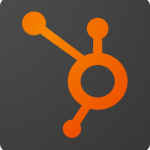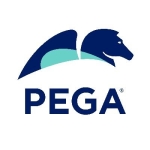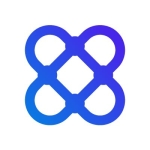What is our primary use case?
Salesforce Sales Cloud is used to track and manage businesses sales. The solution can manage the sales team and evaluate how effective their tools have been. It can determine if they are delivering value.
The sales team populates all their activities on the Salesforce Sales Cloud. We have been given the number of calls to make to new customers that have come in, to track the prospective customers, and many other aspects will be captured. You are able to make direct calls to the customer from inside Salesforce Sales Cloud. We are able to link Salesforce Sales Cloud with a voice-over IP that can make direct calls to customers. The solution is highly versatile and it's integrated with our ERP solution of the company. When the potential customer becomes a customer, it does populate instead of having to start putting new things in the ERP system. It has good compatibility between the CRM, the Salesforce Sale Cloud, and our ERP system.
We try as much as possible to look at how loyal has the customer been. We have some of those KPIs that are coming out from the use of Salesforce Sales Cloud. It's a very great tool that the organization is using to track their business, sales team, sales, and effective management of the customers.
What is most valuable?
The most valuable features of Salesforce Sales Cloud are ease of use. It is very simple for the sales team to use. You can integrate it with a lot of other systems.
For how long have I used the solution?
I have been using Salesforce Sales Cloud for approximately eight years.
What do I think about the stability of the solution?
The stability of Salesforce Sales Cloud is good.
What do I think about the scalability of the solution?
Salesforce Sales Cloud is scalable. However, it depends on the licenses and what modules you require. For example, if you want voice integration, they have it. The ability for you to make your call to the customer directly from the system instead of picking up a phone.
In Nigeria, we have approximately 60. In some other countries, it depends on the number of staff that they have because all the systems have a user license. All the finance team is part of it. We have the marketing team and there are some others, such as the customer loyalty score users. Some of the service users that are rendering technical services, such as customer service staff are also part of using this solution.
The number of users can be quite large. It depends on your operations and the area that you want it to cover. Overall the solution is scalable.
Whether we expand or not depends on the business and how it grows. For example, if the sales teams increase, as a result of the business opportunities that are available in the country, we will increase usage of this solution. However, I am not sure because of the COVID-19 situation. It has impacted a lot of business. The possibility of an increase this year and next year is very slim because most organizations are only getting their sales goals.
How are customer service and support?
Our teams in the head office that manages the entire system may need to escalate an issue based on the request of a country. In this case, they will contact Salesforce Sales Cloud who will advise on what to do.
Which solution did I use previously and why did I switch?
I have used other solutions in this category, such as SAP. Salesforce Sales Cloud and SAP, are very similar solutions.
How was the initial setup?
The setup of Salesforce Sales Cloud is complex. You need specialists in that area to be able to have a good setup. Once it's set up properly, running it is seamless. That's the most beautiful thing about Salesforce Sales Cloud.
Salesforce Sales Cloud is a big system, it stretches across to approximately eight countries for the entire group. The full implementation took approximately six months. It was not done country by country. In my country of Nigeria, it took them close to two months to do the implementation. After it is complete there is a process of improvement. It was approximately two months before everything was finalized and in operation.
What about the implementation team?
We are consultants directly from Salesforce and we have some other consultants from different regions of the country. We have consultants that manage each of the countries' rollout. We did the implementation.
The deployment stretches across different countries and the maintenance is centralized. They have a centralized team at the head office. There are approximately 10 people covering the entire country. We call them the Effectiveness Managers. Each country has what we call the Effectiveness Manager that whose major role is to maintain and look at what is going on in the processes and address any gaps. When they identify something, they report to the central team in the head office.
Then you are talking close to approximately 20 people in the maintenance department. It's a big system for us as far as the capabilities are concerned. It's a big business the team cannot be compared to smaller or medium-size organizations.
What's my experience with pricing, setup cost, and licensing?
The price of the Salesforce Sales Cloud is expensive. We pay monthly for the solution but we are billed quarterly.
The price of the solution could be less expensive.
What other advice do I have?
My advice to others wanting to implement Salesforce Sales Cloud is you have to make sure that you are ready to absorb the price of the solution, it is very expensive. I normally recommend a lower version, such as an open-source CRM.
They have to judge the capability of the financial department of their organization before. The organization has to know their business information well, such as sales, turnovers, the visions, the strategy of the management, and what are they trying to achieve overall.
The business is what will enable me to know whether Salesforce Sales Cloud will be a good fit for them because if they don't have financial strength, the licenses are expensive and they might not be able to afford it.
I rate Salesforce Sales Cloud an eight out of ten.
Which deployment model are you using for this solution?
Public Cloud
Disclosure: I am a real user, and this review is based on my own experience and opinions.


















